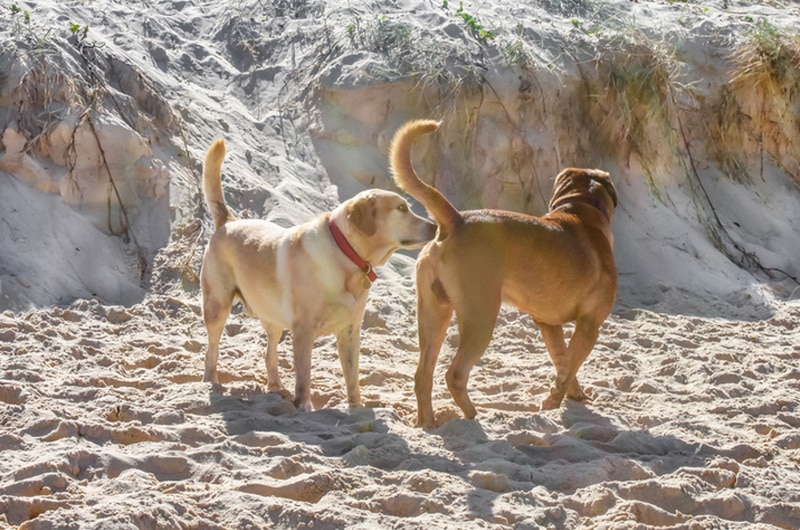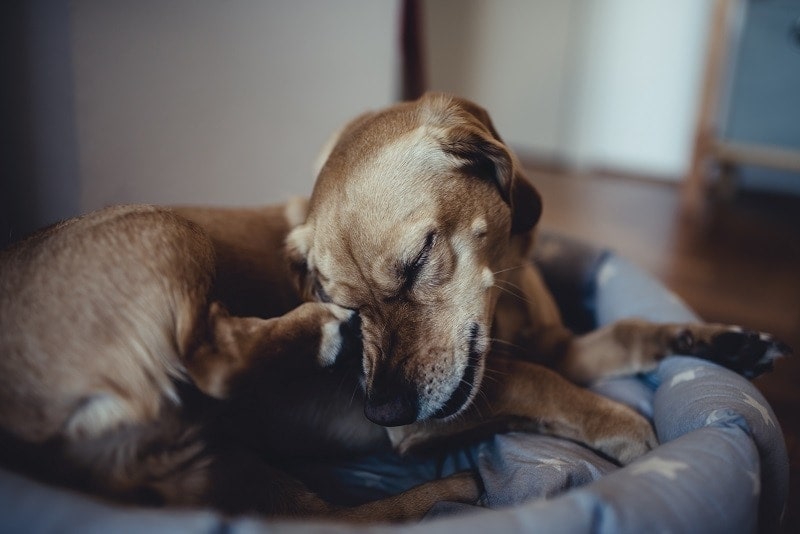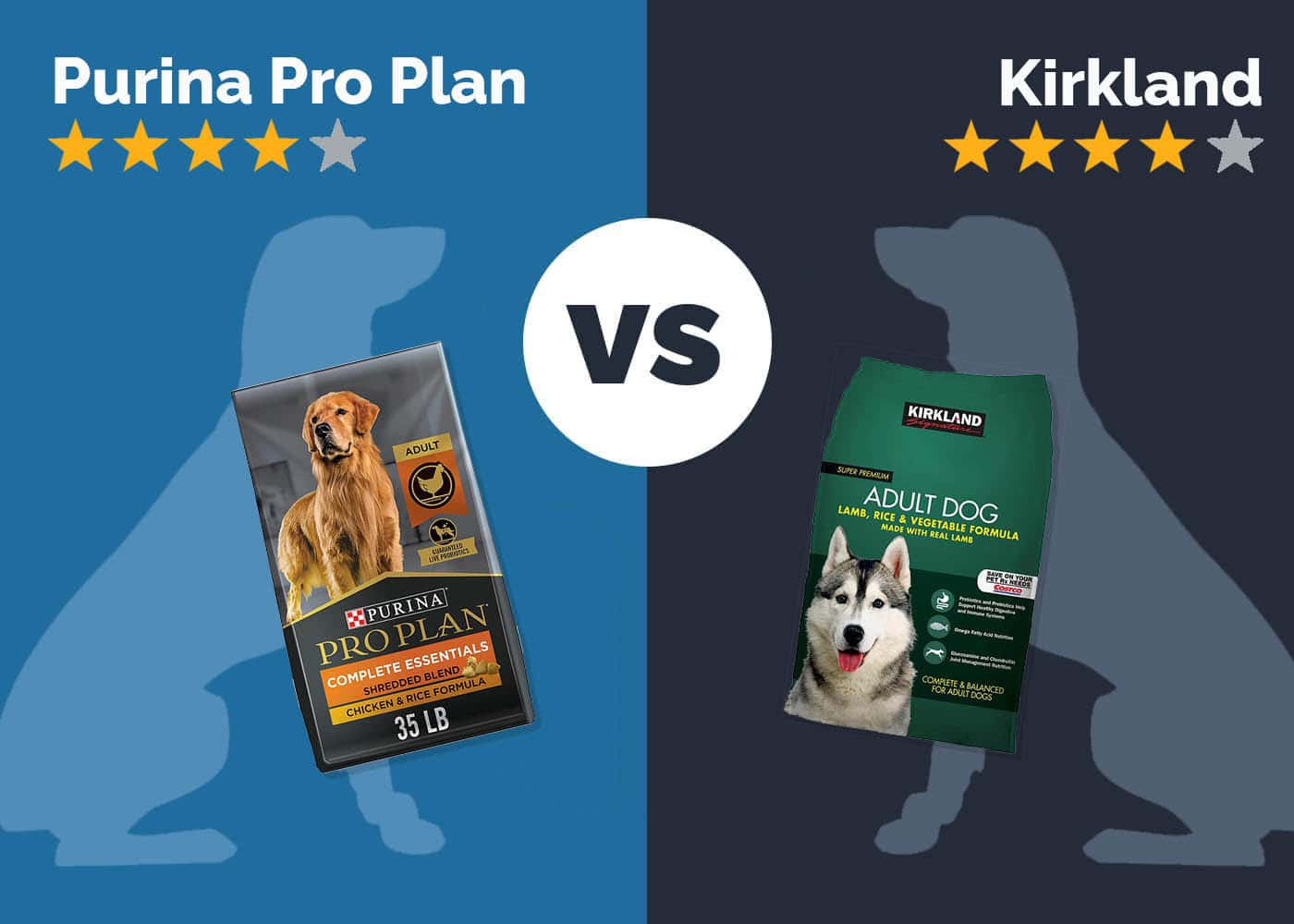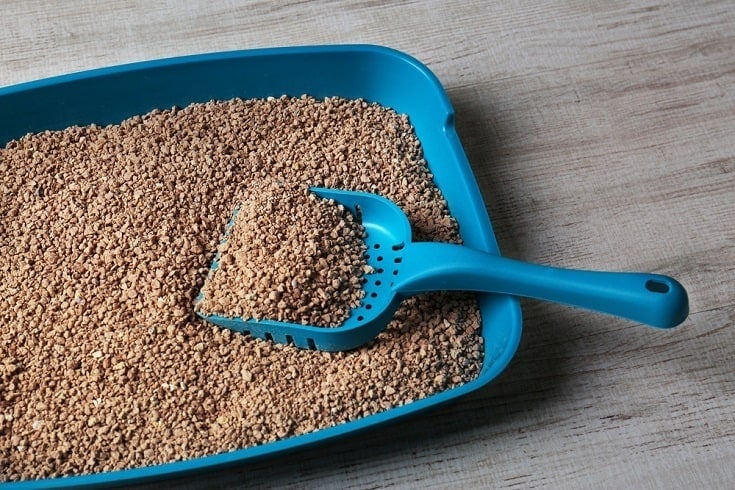My Dog Smells Bad All of a Sudden: Vet Approved Signs, Causes & Remedies
By Lorre Luther
Updated on

While it’s normal for dogs to have a distinctive scent, if your dog’s regular fragrance suddenly becomes intense, you may wonder if you should be concerned and how to address the problem effectively. Dental disease, anal sac issues, and skin and ear secondary bacterial and yeast infections are the most common culprits.
If you’re sure your dog isn’t stinky because they’ve gotten into something pungent, reach out to your veterinarian for guidance to prevent any conditions from progressing. There’s a chance your pet’s body odor may be linked to a medical condition that needs addressing. Speak to your veterinarian before attempting home remedies to ensure that whatever steps you take are appropriate for your dog’s condition.
Click to Skip Ahead:
- How Do Dog Health Problems Lead to Body Odor?
- Signs of Canine Skin Bacterial & Yeast Infections
- What About Home Remedies?
- Can I Just Give My Dog a Bath To Get Rid of The Smell?
- Causes of Canine Allergies
How Do Dog Health Problems Lead to Body Odor?
Dental disease is one of the most common health problems in dogs. In addition to bad breath, it causes pain and can be a chronic source of inflammation if not addressed properly. You may notice bad breath (halitosis) if bacteria are building up in your dog’s mouth. To prevent this, you will need to look after your dog’s teeth by brushing them every day and taking your dog for regular checkups with their veterinarian.
Anal sacs are two little structures that sit internally on both sides of your dog’s bum. They produce a special scented secretion that gets released whenever your dog goes to the toilet. Whenever these sacs get inflamed or blocked, you may notice a pungent fishy smell coming from your dog’s rear end. Pets suffering from this uncomfortable condition often scoot and lick their bottoms to excess. Reach out to your veterinarian if you suspect something may be going on with your dog’s anal sacs, as abscesses can develop without prompt treatment. The problem is usually relatively easy to address during an office visit. Usually, a quick anal sac emptying is enough to solve the issue.
Canine skin problems are mostly caused by allergies. They often manifest as itchiness, which causes pets to lick and scratch to the point where their skin becomes irritated and inflamed. An allergy occurs when the immune system reacts against normal substances (allergens), which can be food, pollens, dust mites, or flea saliva, among others. Secondary bacterial and yeast infections can then take root, often producing a smell that packs quite a punch in the odor department. Ear infections can also cause dogs to smell, with bacterial and yeast infections producing a different type of smell. Recurrent canine ear infections are often linked to allergies.

Signs of Canine Skin Bacterial & Yeast Infections
Dogs suffering from bacterial and yeast infections often have itchy skin. They repeatedly rub against furniture and walls to get relief. Head shaking and frequent licking are also seen. Hair loss, pustules, and skin discoloration are common, as are raw spots featuring smelly yellow or green pus.
What About Home Remedies?
Speak with your veterinarian before using home remedies to help your dog.
In terms of dental care, daily brushing is vital for success. Regular brushing continuously removes the sticky film (plaque) that forms over your dog’s teeth and prevents it from turning into tartar (calculus). Anal sacs are low-maintenance, meaning you only need to worry about them if they cause any issues to your pup.
Skin allergies can be managed if the ultimate cause or causes are discovered. The best way to prevent these issues from continuing is to prevent your dog from coming into contact with whatever is triggering their reactions (when possible). Using home remedies on your dog’s skin without discovering the underlying cause or getting your vet’s advice can harm your pet’s skin and overall health.

Can I Just Give My Dog a Bath To Get Rid of The Smell?
If your dog is suffering from an infection, a normal bath probably won’t fix the smell. While a good soak may provide relief and remove any dirt, anal sac secretions, and traces of urine or stool, it won’t take care of any skin infections, and you’ll likely be right back in the same position within a few days.
On the other hand, using specific vet-recommended shampoos can improve the health of your dog’s skin. Luckily, shampoo therapy is one of the most common and effective strategies to alleviate some skin problems in dogs.
The 4 Causes of Canine Allergies
Allergies are pretty common in dogs. Most allergies develop over time after multiple exposures to a trigger. Itchy skin is the most common sign of canine allergies, but reactions can be local or systemic (involving the whole body). Vomiting and diarrhea are also seen in pets suffering from food allergies.
1. Environmental Triggers
Atopic dermatitis is caused by environmental triggers such as pollen, dust, mites, and even mold. Dogs with the condition have itchy skin around their paws, armpits, and faces. These allergies may worsen during the spring, when pollen is the problem, or last all year if dust mites or molds are the triggers.
While it’s possible to help your dog with atopic dermatitis, there’s no cure. Treatment usually involves anti-allergy medications, soothing baths, and dietary adjustments. Some dogs respond well to allergy shots.
2. Flea Allergy Dermatitis
Flea saliva contains several substances that can trigger an allergic reaction in some dogs. The first sign is itchiness, which can lead to severe scratching, biting, and licking of the affected area until the skin breaks, often resulting in infection.
The area above dogs’ tails is a common target for scratching and biting. Good flea control year-round is the first step in fixing the problem. Your vet may prescribe antihistamines and corticosteroids to relieve itching and to stop the body’s reaction against the allergens. Dogs with secondary bacterial infections often require shampoo therapy and topical or oral antibiotics.

3. Food Allergies
Food allergies in dogs are often related to proteins such as lamb, beef, chicken, and eggs. Dogs with food allergies often have itchy skin around their paws and ears. Many vomit and have diarrhea as well. Elimination diets are used to diagnose food allergies.
The process requires strict adherence to a limited food protocol followed by the controlled introduction of specific proteins to see how the dog reacts. Most dogs with food allergies do fine if the trigger is identified and avoided. Several dietary formulations are available for dogs with food allergies, including hydrolyzed and novel protein diets.
4. Contact Allergies
Contact allergies occur after a dog comes into contact several times with something that ends up irritating their skin, like plants, shampoo, conditioner, or a flea collar. Itchy spots are usually limited to places in direct contact with an irritating substance or product on your dog’s body. Removing the trigger often starts the healing process, but some pets benefit from medication to reduce the itching.

Conclusion
Healthy dogs don’t have terribly strong scents. Dogs usually begin to smell when suffering from dental disease, anal sac problems, or skin and ear bacterial or yeast infections. If you’re sure your dog isn’t stinky because they rolled in something fun during their last walk, it’s time to check in with your veterinarian. While you can take steps to keep your dog’s mouth and skin healthy, veterinary guidance is critical to keep from making things worse by applying harsh products or bathing your pet too frequently. The best way to prevent the situation from occurring again is to work with your veterinarian to identify and treat the underlying condition causing the problem.
Featured Image Credit: san4ezz, Shutterstock















